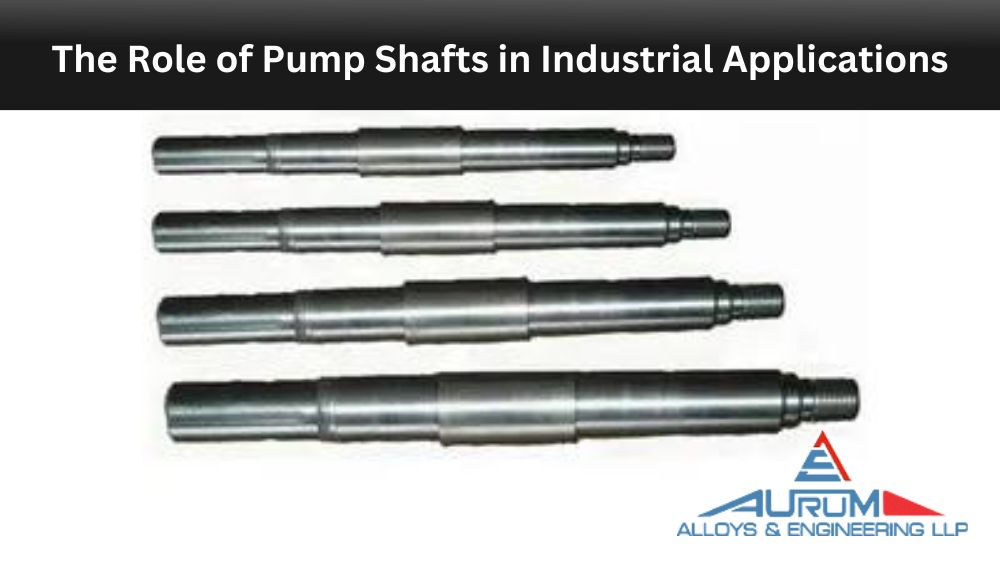The Role of Pump Shafts in Industrial Applications
Industrial applications rely heavily on using pumps to move and distribute fluids across various processes. It is essential to understand the vital components of these pumps to ensure that they operate efficiently, can withstand long hours of operation, and do not cause any untoward incidents in the workplace. One of the critical components of a pump system is the pump shaft. In this blog post, we will delve deeper into pump shafts and learn about their construction, operation, and the critical role they play in industrial applications.
What is a Pump Shaft?
Pump shafts are cylindrical mechanical components that rotate inside the pump housing and support the pump impeller. They can be manufactured from materials such as stainless steel, carbon steel, chrome molybdenum, cast iron, or duplex alloys. These high-strength shafts help transmit torque between the motor and impeller while maintaining a stable flow rate and pressure within the system.
Advantages of Pump Shaft in Industrial Applications
Efficient: One of the primary advantages of pump shafts is that they are more efficient than other pumps. This is because pump shafts can transfer more energy from the motor to the pump, which results in greater efficiency. Additionally, pump shafts require less maintenance than other pumps, which can further increase their efficiency.
Durable: Another advantage of pump shafts is that they are more durable than other pumps. This is because pump shafts are made from high-quality materials that withstand heavy use. Additionally, pump shafts are often equipped with bearings that can further extend their lifespan.
Reliable: Pump shafts are also more reliable than other types of pumps. This is because pump shafts are less likely to break down or malfunction due to their high-quality construction. Additionally, pump shafts typically come with a warranty that can further ensure their reliability.
Affordable: Another advantage of pump shafts is that they are more affordable than other types of pumps. This is because pump shafts do not require as much maintenance as other types of pumps and can often be found at a discount due to their high quality. Additionally, pump shafts typically have a longer lifespan than other pumps, which can further reduce their overall cost.
Require Less Maintenance: Finally, another advantage of pump shafts is that they require less maintenance than other types of pumps. This is because pump shafts are designed to be durable and require little to no upkeep over their lifetime. Additionally, many pump shaft manufacturers offer extended warranties that can further reduce the need for maintenance.
Role of Pump Shaft in Industrial Applications
Pump shafts are made of high-grade stainless steel, bronze, or nickel-based alloys. They are subjected to high torsional and bending stresses during the pump operation. The pump rotation is transmitted through the shaft to the impeller, causing the fluid to move. Hence, the shafts must have high fatigue strength and resist wear and corrosion.
Apart from these mechanical properties, pump shafts have specific geometric characteristics that affect their performance. The outside diameter of the shaft, its length, and the position of the pump impeller relative to the shaft centerline all play an integral part in determining the pump’s efficiency. A well-designed shaft can improve pump performance, reduce power consumption, and increase overall pump lifetime.
One of the biggest challenges in designing pump shafts is ensuring they can withstand axial loads and moments on the impeller. These moments can occur when the impeller is not accurately centred on the shaft or if there are hydraulic imbalances in the pump. Such moments can lead to shaft deflection, causing damage to the bearings and seals. Therefore, pump shafts must be precisely machined and dynamically balanced to ensure that loads and moments are evenly distributed across the shaft.
Pump shafts can fail for various reasons, including misalignment, insufficient lubrication, wear and tear, and corrosion. A shaft failure can lead to significant losses and downtime for the industrial process. Therefore, it is essential to perform scheduled inspections and maintenance of pump shafts to ensure their continuous and safe operation.
Conclusion:
In conclusion, a pump shaft is a vital component of a pump system that plays a crucial role in the performance and efficiency of industrial applications. The shaft’s mechanical and geometric properties, along with its precise design and maintenance, can significantly impact the functioning of the pump system. At all times, it is essential to ensure that the pump shafts are well-designed, regularly inspected, and maintained to prevent any losses or accidents in the workplace.



